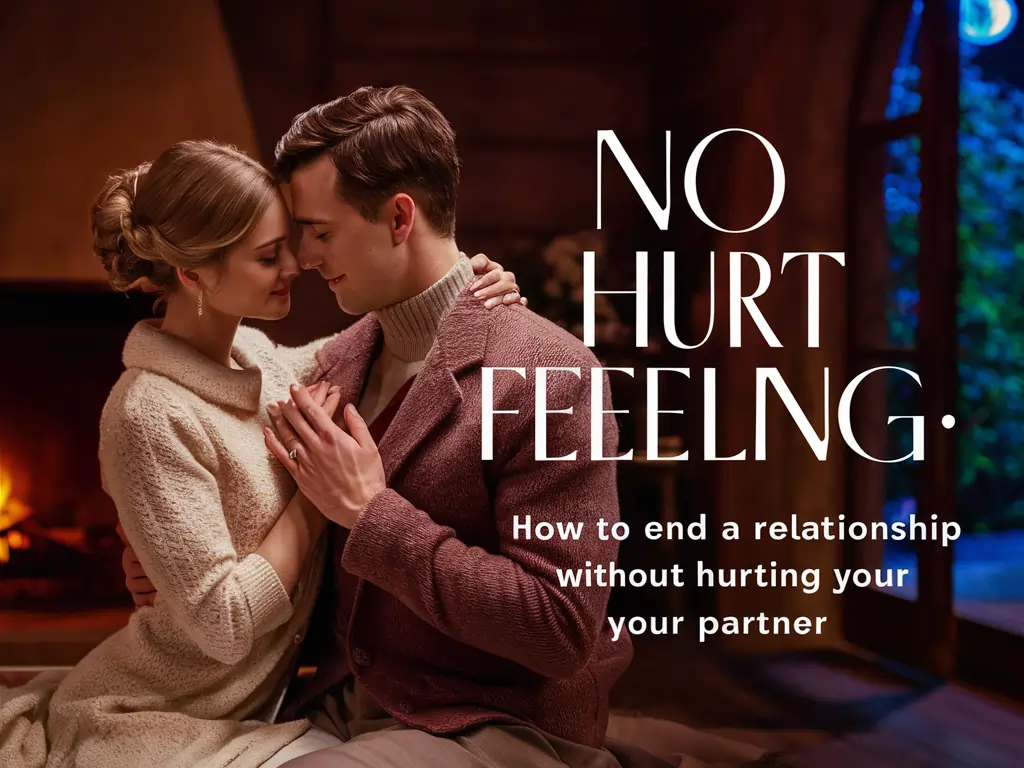How to End a Relationship Without Hurting Your Partner

In my counseling practice, I often hear the question, “How do I end a relationship without hurting someone’s feelings?” Whether it’s a romantic relationship or a friendship, ending it gracefully is generally a challenge.
The problem arises because so many people see it as a reflection of their worth when someone doesn’t want to be with them. “If I was good enough, this person would want to be with me, so there must be something wrong with me.”
However, there is another perspective to consider. I believe that each of us has a relatively small number of people with whom we feel a deep connection. Whether you explain this connection as being part of the same soul group, having similar energies, or simple chemistry, the reality is that we don’t connect deeply with most people. This lack of connection doesn’t mean there is anything wrong with either person. Just because I don’t feel connected with someone doesn’t mean there is anything wrong with them, and just because someone doesn’t feel drawn to me doesn’t mean there is anything wrong with me. It’s just the way things are, and it has nothing to do with anyone’s worth.
For instance, if I tell someone, “I don’t feel a strong connection between us,” I am merely stating a fact. I am not making a judgment about their adequacy or worth. We all meet perfectly wonderful people with whom we just don’t feel a connection. These people might be very attractive, have similar interests, and even be on a similar growth or spiritual path, yet the spark that ignites friendship or romance just doesn’t exist. If we could all accept that someone not wanting to be with us has nothing to do with our worth, we wouldn’t get hurt when someone says no to a relationship.
I don’t pretend to understand all the factors that create a connection between two people. However, I do know that we all have experienced deep, rapid connections with some people and a lack of connection with others. Many people have been set up on dates because a friend insisted, “You two will like each other; you’re so similar,” only to discover a complete lack of connection.
Related Stories from BondBuddy
Long Distance Relationship Do They Work

Take, for example, Katie, a client of mine who recently shared her experience. “Everyone said Rick is perfect for me. We look good together, have similar interests and backgrounds, are the same religion, and are equally educated. He’s a really sweet guy. I kept thinking that if I just gave it time, I would feel the connection. But it never happened. I felt so bad breaking up with him because there is nothing wrong with him, but the connection just isn’t there.”
Is it anyone’s fault that the chemistry or connection isn’t there? Of course not! There is nothing wrong with either Katie or Rick. The connection just isn’t there for Katie, and she couldn’t make it be there. She ended up saying to Rick, “You are a really terrific guy. I wish I felt the connection with you that I want to have with a partner, but I don’t. It’s not your fault – it’s just not there.”
Whether or not Rick felt hurt by this is really up to him. Katie can’t take responsibility for how he feels. If Rick believes that not everyone will feel connected with everyone, he won’t feel hurt. But if he believes that if a woman doesn’t connect with him, there is something wrong with him, he will feel hurt. His hurt comes from his belief system, not from Katie breaking up with him.
Ending a relationship gracefully means speaking our truth without blame or judgment and not taking responsibility for another’s feelings. Randi, another client of mine, recently told me that she was able to tell the truth rather than give herself up to avoid hurting someone. A friend had introduced her to Barb, thinking they had a lot in common and could be good friends. Randi got together with Barb and felt no connection. In fact, she felt the opposite. While Randi thought Barb was a sweet person, she also felt Barb’s energy pulling on her in various ways. While some people might not mind needy energy or even find it endearing, Randi didn’t like it at all. She was pleased with herself for being able to tell Barb that she just didn’t feel a connection. Randi let go of taking responsibility for Barb’s feelings if Barb felt hurt by this.
In essence, the process of ending a relationship gracefully involves honesty and acceptance. We must acknowledge that not all relationships are meant to last and that a lack of connection doesn’t imply a lack of worth. By communicating openly and honestly, we can minimize the hurt feelings that often accompany breakups. It’s essential to remember that each person’s feelings and reactions are influenced by their belief systems and personal experiences.

For example, if someone believes that their worth is tied to how others perceive them or how many relationships they can maintain, they are more likely to feel hurt when a relationship ends. On the other hand, if someone understands that connections are complex and that not every relationship will work out, they are more likely to handle breakups with resilience and grace.
One way to approach ending a relationship is by focusing on the positive aspects and expressing appreciation for the time spent together. You might say, “I’ve enjoyed getting to know you and spending time with you. However, I’ve realized that I don’t feel the connection I need for this relationship to continue. It’s not a reflection of you or your worth; it’s just how I feel.”
This approach emphasizes that the decision is based on personal feelings rather than the other person’s qualities or actions. It helps to frame the conversation in a way that reduces the likelihood of the other person feeling blamed or judged.
Additionally, it’s important to listen to the other person’s feelings and acknowledge their perspective. Allow them to express their thoughts and emotions without interrupting or trying to defend your decision. This can help them feel heard and respected, even if they are hurt by the outcome.
In some cases, it may be helpful to offer support or suggest ways to move forward. For example, if ending a romantic relationship, you might suggest remaining friends if that feels appropriate and comfortable for both parties. If ending a friendship, you might offer to stay in touch in a different capacity or suggest mutual friends they can lean on for support.
Ultimately, the goal is to handle the breakup with compassion and respect, recognizing that it’s a difficult experience for both parties. By speaking your truth gently and acknowledging the other person’s feelings, you can navigate the end of a relationship in a way that minimizes hurt and fosters understanding.
In summary, ending a relationship gracefully involves several key principles:
- Honesty: Be truthful about your feelings and the lack of connection without blaming or judging the other person.
- Respect: Acknowledge the other person’s worth and appreciate the time spent together, even if the relationship isn’t working out.
- Empathy: Listen to the other person’s perspective and validate their feelings.
- Compassion: Offer support and suggest ways to move forward, if appropriate.
- Self-Awareness: Understand that your feelings and decisions are valid and not a reflection of anyone’s worth.
By adhering to these principles, you can end relationships with integrity and kindness, reducing the emotional pain often associated with breakups. Remember that it’s normal for relationships to end and that it’s a natural part of life’s journey. Embracing this understanding can help both parties heal and move forward more positively.





